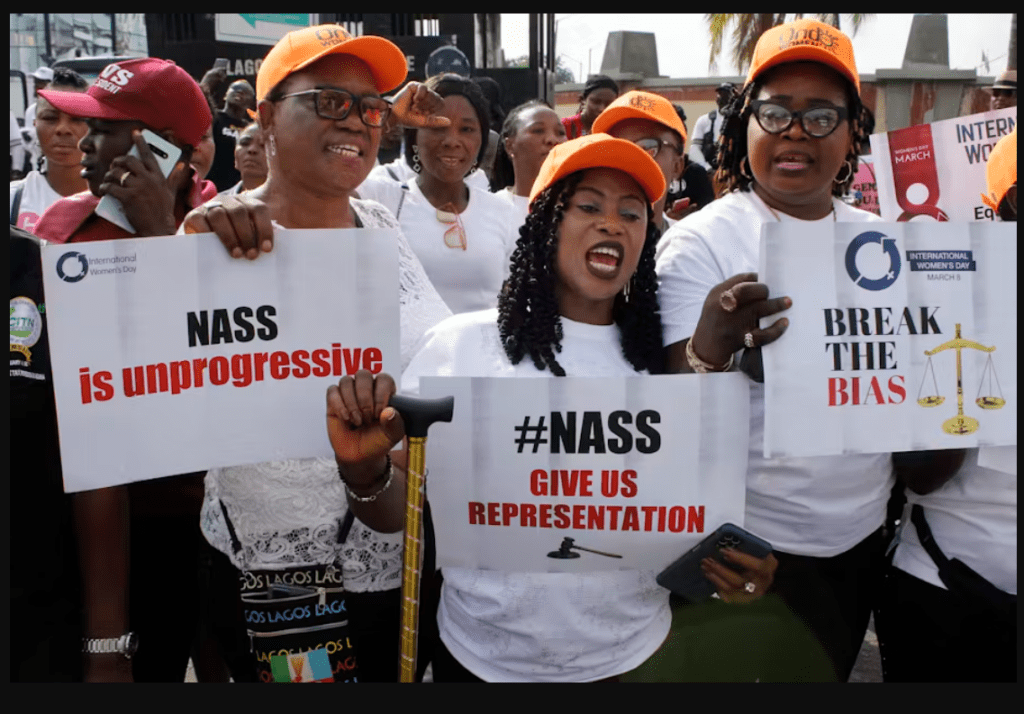Sunrise Over Ondo State: Women’s Role in the Governorship Election
The sun illuminated Ondo State with a dazzling glow as residents readied themselves for a significant occasion— the election of their 19th governor. The atmosphere buzzed with excitement and resolve as voters emerged, albeit in low numbers, prepared to assert their democratic rights.
Election Overview and Low Female Representation
The Independent National Electoral Commission (INEC) revealed that 2,053,061 registered voters would be casting their ballots across 2,846 polling units within 18 local government areas. As the election unfolded, a stark reality became evident: the almost complete absence of female candidates among the 18 gubernatorial aspirants, all of whom were men. This glaring omission underscored the ongoing challenge of women’s political participation in Nigeria.
Women’s Participation in Electoral Processes
Women accounted for 49.64% (approximately 1.019 million) of registered voters in Ondo, slightly trailing behind their male counterparts, who made up 50.36% (about 1.034 million). Among these voters, 35.41% were youths (726,944), and 35.17% were middle-aged individuals (721,982). Despite this significant presence, only two women appeared on the ballot as deputy governorship aspirants, representing the Labour Party and the Social Democratic Party (SDP)—parties that are not traditionally dominant in the political landscape.
Women’s inclusion in primary elections also remains a pressing issue. The Peoples Democratic Party (PDP) had no female candidates in its primaries, while the All Progressive Congress (APC) featured two women, who unfortunately did not secure sufficient support to be nominated as candidates.
A Call for Change from Experts
Gladys-Otemnep Festus, a political expert and former sports commissioner of Cross River State, emphasized the necessity of women’s involvement in governance. She asserted that women are inherently skilled administrators and their exclusion could potentially hinder societal progress.
“Not giving women the opportunity to lead can have ramifications that are detrimental to society as a whole,” Festus remarked.
Broader Implications for Women in Nigerian Politics
The situation in Ondo mirrors the broader national trend where women’s representation in Nigerian politics has been in decline since 2011. A report from the Carnegie Endowment for International Peace highlighted that during the recent elections held in February and March 2023, women captured only 4.69% of executive and legislative positions, despite constituting 49.3% of the nation’s population.
In the 2023 National Assembly elections, only 17 women were elected out of 286 who competed for House of Representative seats and among the 92 who sought Senate positions, yielding a mere 3.62% representation in the 10th Assembly. Nigeria’s performance in female political representation is significantly below the sub-Saharan regional average of 26%.
Challenges to Women’s Political Empowerment
The deep-rooted patriarchal practices in Nigeria have stunted women’s political engagement. The national average for women’s participation in elective and appointive positions rests at a mere 6.7%, far below the global average of 22.5%, Africa’s average of 23.4%, and West Africa’s 15%.
Notably, Nigeria has yet to elect a female president. In the 2023 presidential elections, only Chichi Ojei of the Allied Peoples’ Movement appeared as a candidate, a drop from six female candidates in the preceding 2019 elections.
Addressing the Barriers to Female Governance
Damilola Agbalojobi, a political scientist and gender expert, points to the high cost of election campaigns and the burden of unpaid labor, alongside systemic discrimination, which all contribute to the economic barriers faced by women aspiring to political office.
Moving Towards Gender Equality in Politics
The struggle for women’s representation in Nigeria faced a setback when a constitutional bill proposing special seats for women in legislative bodies was rejected by the National Assembly in March 2022, despite support from advocacy groups and prominent figures like the then-first lady, Aisha Buhari.
Additionally, the National Gender Policy, aimed at establishing a 35% quota for women in governance, has yet to be meaningfully implemented since its inception in 2006. Advocates call for the full realization of this policy as a necessary step toward increasing women’s roles in leadership.
Festus concluded, “Implementing the 35% gender policy would empower women to hold higher positions and facilitate necessary reforms in our political and economic systems.”


